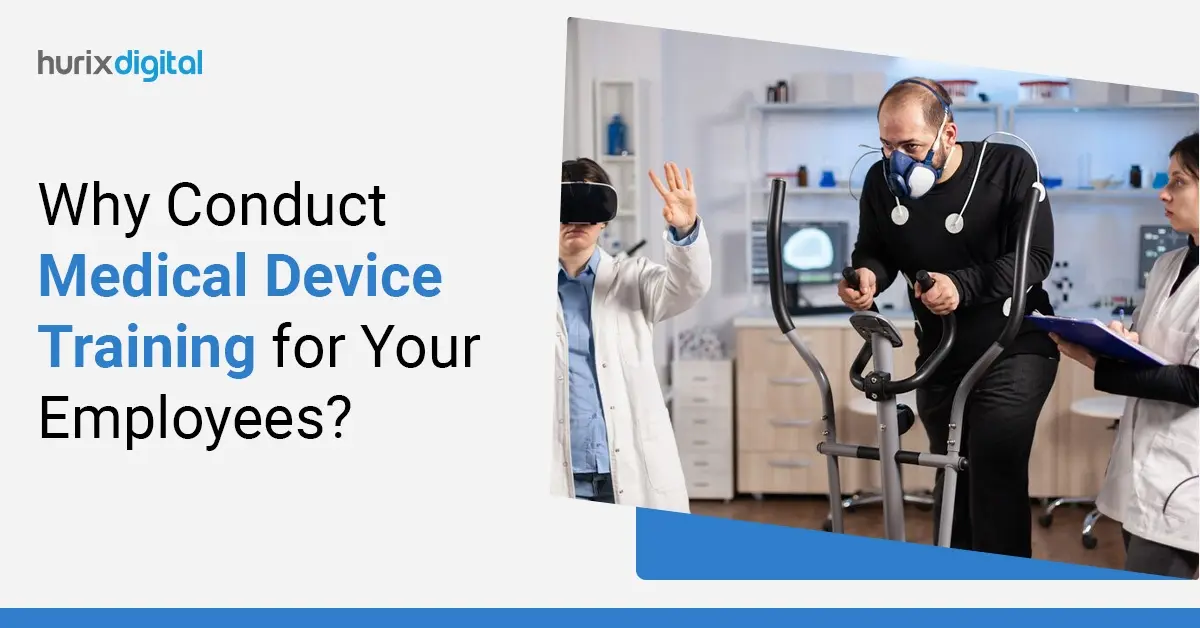
How Can HR Drive Innovation in the Pharma and Healthcare Industry?
Summary
The blog examines HR evolution in pharma, highlighting AI, ethics, inclusion, and data analytics for a tech-driven, customer-centric transformation strategy.
The pharma and healthcare industries have undergone a significant revolution recently, driven by financial challenges and the limitations of traditional talent strategies.
Advancements in technology and updated operational strategies, such as adopting AI and R&D principles, have paved the way for an innovative HR transformation roadmap.
In this post, we will explore how HR departments in the pharma sector are evolving to become more innovative and customer-centric.
Table of Contents:
- About HR Transformation
- Principles of Successful HR Transformation
- The Innovative Culture of HR Transformation in the Pharma & Healthcare Industry
- HR Transformation Examples to Explore
- To Wrap Up
About HR Transformation
HR transformation includes the inclusion of technology, globalization, public policy modernization, and cultural evolution for the industry. Pharma and healthcare companies are focusing on a pure HR transformation strategy that is tech-oriented, customer-focused, and demand-driven.
Let’s look at a PwC analysis that shows the relevance of AI-enabled intelligent automation and advanced analytics.
According to the report, the pharma and healthcare industries have witnessed:
- A 60% to 70% reduction in process timelines
- Reduced burden for patients, providers, and life sciences companies
- Approximately 30% reduction in operational costs
- About 40% reduction in project delivery timelines.
Principles of Successful HR Transformation
A successful HR transformation strategy relies on the following principles:
- Defining the Future: Establishing a clear vision for the future of HR and justifying the need for change.
- Aligning Internal and External Strategies: HR heads align people, processes, and technology and ensure that they work together to achieve desired outcomes.
- Partnering with IT: Applying key technological advancements in all HR roles and collaborating with IT departments.
- Eliminating Redundant HR Activities: Streamlining processes to focus on impactful activities.
- Speed and Action: Prioritizing quick actions to maintain momentum.
- Rigorous Management: Managing the transformation process and utilizing resources efficiently.
Also Read: What is HR Transformation — and What Does it Achieve?
The Innovative Culture of HR Transformation in the Pharma & Healthcare Industry
HR transformation in the pharma and healthcare industries is witnessing significant positive trends. Here are some key areas driving this transformation:
1. Emerging Roles of HR Managers
HR Managers or HR transformation consultants are no longer dependent on attracting top talent using traditional systems. They are moving towards personalized reward and payscale systems, striving to recruit the best science graduates, and competing with other industries.
Here are some innovations and advancements in their roles:
- Tech-enabled Recruitment: Modern recruitment by HR managers in the healthcare sector depends on AI and machine learning through Applicant Tracking Systems. This helps pharma leaders conduct automated profile matching, screening, interviewing, and onboarding.
- Advanced Analytical Tools: Modern technologies such as facial coding help managers gauge critical details about the candidates. These tools have offered valuable data insights and reduced employee attrition.
2. Upskilling and Training
HR transformation roadmap is marked by promoting continuous learning and development. This keeps the workforce competitive, engaged, and adaptable to technological advancements. Here are some changes:
- Virtual training methods, driven by AI and cloud-based platforms, make training accessible to everyone, irrespective of location.
- Microlearning, which depends on bite-sized learning modules, allows employees to learn at their own pace.
- Analytics helps HR teams track progress and identify growth opportunities. These insights help in formulating personalized development plans and enhancing overall competency.
3. Tech-Empowered Employee Engagement
Technology facilitates employee engagement through automation software. This technology helps provide information to all employees, including policy changes, appreciation rewards and recognition, and even shift management.
AI bots are employed to handle FAQs, which enhances internal communication. Automated systems have also reduced the workload of HR heads by handling payroll, recruitment, and benefits.
4. Utilizing Data Science and Data Analytics
Data transparency helps HR teams in Pharma and Healthcare understand employee performance, employee needs, and operational efficiency. Data science works on identifying issues related to the work pattern, such as an overload of work, which empowers them to intervene immediately.
- Advanced data analytics enhances cybersecurity by flagging potential threats and protecting sensitive information.
- Such advancements help in optimizing resources, planning workforce expansion, and encouraging a transparent work environment.
5. Creating an Inclusive Workplace
HR transformation consultants and teams are promoting diversity and inclusion, which builds a sense of belonging within the employees. This is crucial for employee satisfaction. This also includes collaboration between HR and other departments, which helps create a cohesive work environment.
The bottom line is that all departments and employees should be well-coordinated in a diverse and inclusive environment where every team works towards achieving common objectives.
6. Driving Change as a Change Agent
HR managers are driving organizational change, which ultimately leads to improved performance. Here are some ways:
- Highlighting expertise in strategic alignment minimizes employee resistance and dissatisfaction.
- Introducing continuous and small-scale improvements for lasting organizational enhancement.
- Evaluating the effectiveness of various departments and practices and aligning them with the organization’s mission and vision.
- Establishing key metrics to measure organizational performance.
7. Championing Employees
Modern HR managers in the pharma industry are taking care of their employees as much as they are focusing on organizational goals. Here are some ways:
- Revising job designs and organizational structures considers evolving business trends.
- Encouraging stress management and integrating it into corporate culture to enhance performance and well-being.
- Creating a motivating and positive work environment to retain top talent.
- Benchmarking organizational practices against industry leaders.
- Learning from other sectors to improve the quality of work life.
8. Encouraging Corporate Ethics
The pharma and healthcare industries revolve around constant pressure to follow ethical practices. Governments emphasize policies and protocols, especially in these industries, as human lives are at stake. HR heads are promoting compliance and stringently incorporating such ethical guidelines.
Here are some ways:
- Incorporating internal policies to ensure they protect companies in complex regulatory environments
- Setting clear expectations for behavior.
- Building an ethical corporate culture by engaging employees.
- Translating employee engagement into ethical practices to achieve organizational goals.
9. Streamlining Administration
HR heads are focusing on the organization’s core competencies in the following ways:
- Working on reducing expenses related to training, development, and knowledge management as long-term investments.
- Elevating the brand image and equity of growing organizations.
- Outsourcing non-core activities, like training and upskilling, so that HR personnel can focus on organizational needs.
- Enhancing innovation in products, services, and processes.
- Encouraging transformational leadership to thrive in a changing business environment.
- Focusing on developing internal leaders and recruiting successful leaders externally.
HR Transformation Examples to Explore
Key trends and technological advancements have accelerated HR transformation in the pharmaceutical and healthcare industries.
Here are some HR transformation examples that have led to a revolution in HR functions within the industry:
1. Digital Transformation
Digital tools have helped HR functions by streamlining processes and improving decision-making. Companies like Merck & Co., AstraZeneca, and Pfizer use AI-driven systems to enhance drug discovery, manage clinical trials, and predict patient outcomes.
2. DataOps and AI Integration
DataOps helps manage data more consistently. This empowers HR heads to gain faster insights and make better decisions. Sanofi and Exscientia collaborate on AI-driven precision medicines, and IBM and Pfizer use AI for immune system studies.
3. Cloud Computing and Blockchain
Cloud computing enhances data security and compliance and facilitates faster drug development. Cloud-based platforms are used to offer employee training and development at various stages of their career in the sector. Blockchain improves supply chain transparency and data security.
4. Employee Upskilling and Change Management
Pharma companies invest in upskilling employees to handle new technologies. Effective change management initiatives maximize the benefits of digital tools. These tools, along with online programs, enhance patient care by providing 24/7 access to healthcare information.
In this sense, by encouraging a culture of innovation and continual development, CHRO/VP HRs play a critical role in putting these changes into action. HR directors may significantly improve organizational effectiveness, employee engagement, and overall industry competitiveness by utilizing technology and data-driven insights.
Also Read: What is a Successful Human Resource Transformation in 2023?
To Wrap Up
A successful HR transformation in healthcare requires analyzing current capabilities and developing a comprehensive human capital strategy. This involves creating a technology roadmap to achieve cost savings and support the organization’s overall objectives.
By partnering with Hurix Digital, HR leaders can focus on strategic and change management roles in the pharma and healthcare sectors. Our experts will help you implement an HR transformation framework that leverages technology and data analytics and promotes continuous learning and ethical practices.
Get in touch with us today!

A highly enthusiastic and motivated sales professional with over twenty five years of experience in solution selling of training-related applications and services. Maintains an assertive and dynamic style that generates results. Ability to establish long-term relationships with clients built on trust, quality of service and strategic vision. Specializes in financial services, higher ed, publishing and government in the areas of learning and development.





